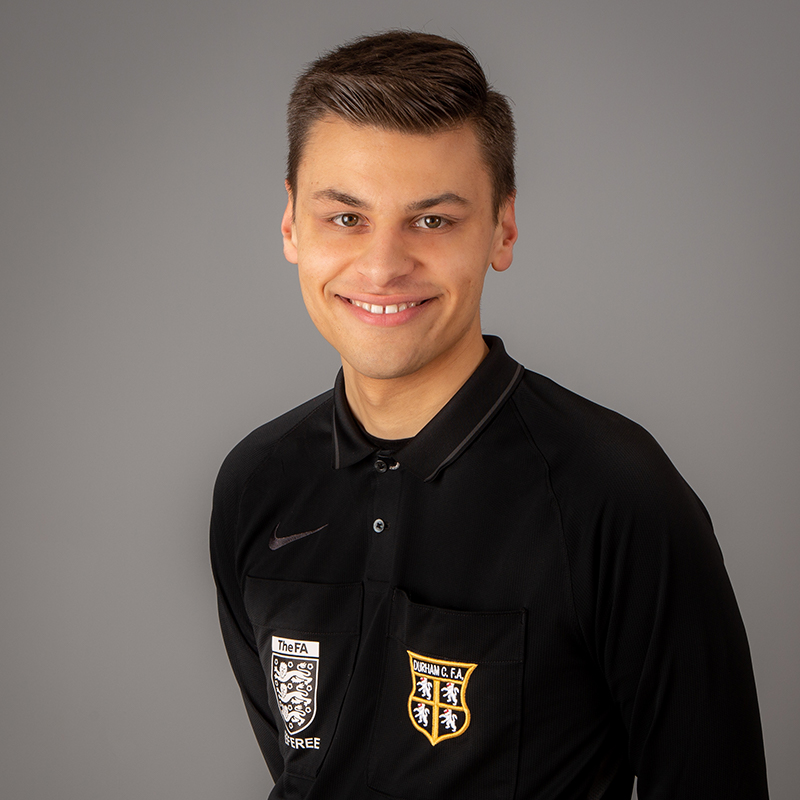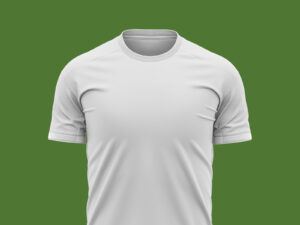Nathan Sherratt: The power of sport

Nathan Sherratt’s profile is growing.
Despite being just 23 years old the Durham-born referee has been taking charge of football matches for the past seven seasons, from league fixtures to charity games and cup finals.
But officiating is not just a weekend thing as Nathan is also the founder and manager of The Third Team – an organisation that provides education and training for referees across several sports, as well as mental health and wellbeing support.
For this year’s World Autism Day he was interviewed by Sky Sports about autism and how it impacts his refereeing, with raising awareness of the spectrum now something he intends to add to his repertoire.
“It’s one of the big things that I want to see changing over the years,” he told Spautism. “So when I have children and they go to school, they can be educated about it, and that would be really important for us as a society – we need to know more.
“When Chris Hull from Sky Sports asked me if I tell players and coaches about my autism I said no, because there’s not that understanding and empathy. Not enough people know what it means.
“One of the big aims of going on Sky Sports was so people would think about not just me as a referee with autism, but also about autism in general – whether I’m a referee, a bank manager, or a butcher, it’s the fact that I’m going about my daily life.
“It’s also about raising awareness and saying to other referees on the spectrum that they’re not on their own, there’s challenges that we face and we can work through them.
“Sport massively has the power to do good and I hope it can with autism. The amount of money that gets raised from people doing marathons and charity football games that get people playing at grassroots level is magnificent.”
Having started from nothing to building a business around refereeing, Nathan knows all too well the importance of opportunities on the first step of the ladder when getting into sport.
Nathan was invited to try a refereeing course by a friend whose father worked as an official in the top division of non-league.
“I was coming up to 16 and I didn’t want a paper round or a job in a shop, as I wanted to make a bit of money but within my own schedule. That’s why I did it at the beginning, and that’s why a lot of referees do it.
“Refereeing is one of the best things you can do for your CV whether you’re male, female, young or old. There are so many things you can get: communication skills, management skills, organisational skills, and if you go to a job interview you have an abundance of things to talk about regarding teamwork.
“There are a lot more academics involved in refereeing because there is a psychological aspect. It’s not just turning up with a whistle or a flag – you’ve got to work for it, train hard, and be mentally fit as well as physically fit.”
“There has never been a better time to become a referee. There are more and more opportunities around the corner, and they will continue to grow so you can make refereeing a career.”
“Refereeing is one of the best things you can do for your CV whether you’re male, female, young or old.”
Nathan Sherratt
While juggling his duty to the refereeing world on and off the field, Nathan also uses exercise to clear his head by regularly going for walks and spending time on the golf course – as well as absorbing himself in the wider world of sport.
“Before the COVID-19 pandemic I went to Portugal and played in the summer. That was a good social thing for me and my friends.
“As a spectator, my other favourite would be cricket. But I’m as open-minded as I could possibly be, sometimes just looking at sport from an appreciation point of view.
“I’m lucky that I live in the north-east as we have one of the most successful basketball teams [Newcastle Eagles] in the country. Although I’m not a massive supporter of the sport, the spectacle of how quick it is fascinates me.
“I talk to officials from many different sports and you realise that our jobs are the same in terms of upholding laws. By watching them officiate their sports, you can learn a lot of skills and tricks that help you in game management.
“As referees we can also take a lot from the players because we both look to execute a game plan, and we are sharing a pitch with them and dealing with the same moment.”

While there are many parts to a referee’s job, having the ability to learn and apply the laws of a sport is something that will never change.
This is an attribute that for some people with autism comes as an advantage, but for Nathan it provided a certain challenge, highlighting how everybody can be different on the autism spectrum.
“When I was first starting to referee, I followed the laws too strictly. This created problems in my game management.
“I then had a diagnosis when I was an early teenager; I saw what autism was on the face of it but I didn’t know what it meant. I had an awakening when I was 20 because I took the time to understand what it meant for me, and then things changed because I was able to adapt many aspects of my life.
“As a referee, I had to learn more about the way neurotypical people work because I have to apply the same laws to a game that everybody else is playing. This made me understand more about the players on the pitch.
“Refereeing is not the easiest thing in the world for someone with autism to do, but if you can take the positives from it, it helps you grow and that’s what it’s done for me.”
Personal growth is something that Nathan encourages everybody to strive for, be it as a referee or something completely different.
“Try to learn about what you want to do as much as possible so you have the best picture before you start doing it and you can give it your all.
“You might be the type of person who reads things to educate yourself, or listens to podcasts, or somebody who likes to actually try it.
“I speak to people who are looking at getting into refereeing and I give them advice and guidance about it before they take the course. You might want to voluntarily referee school football or small children’s football where you don’t require a qualification so you can give it a go.
“Also invest time to understand where you sit on the spectrum and what challenges autism presents for you, but what are your personalities that shine through.
“Learning about my autism and then understanding it from a neurotypical person has also enabled me to function in my everyday life much better.
“And if refereeing is not for you, you can still absolutely get involved in sport.”


